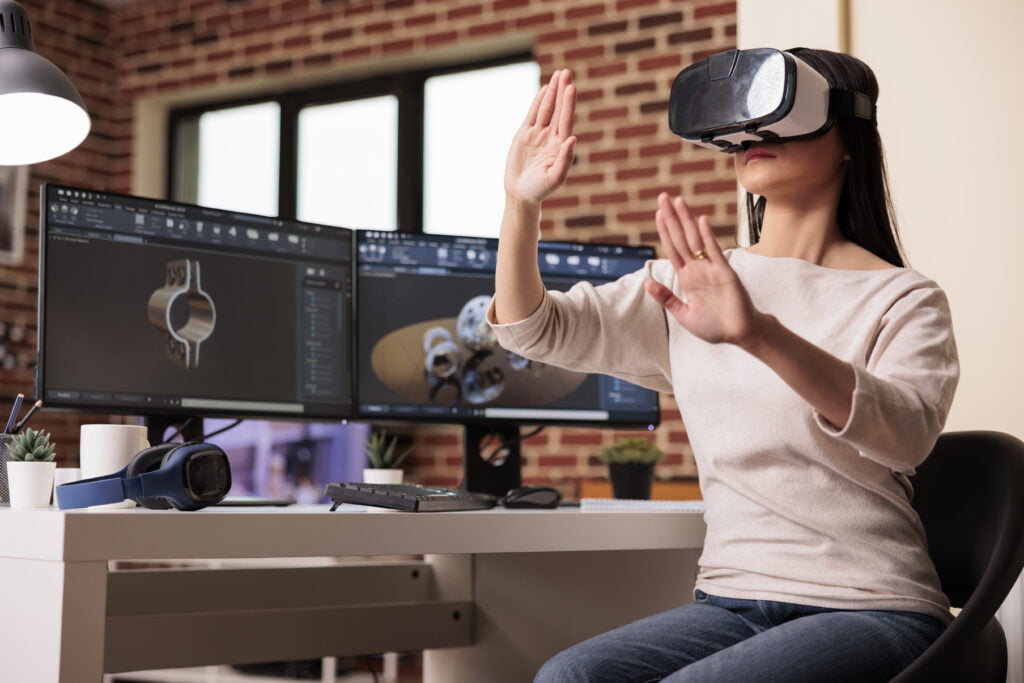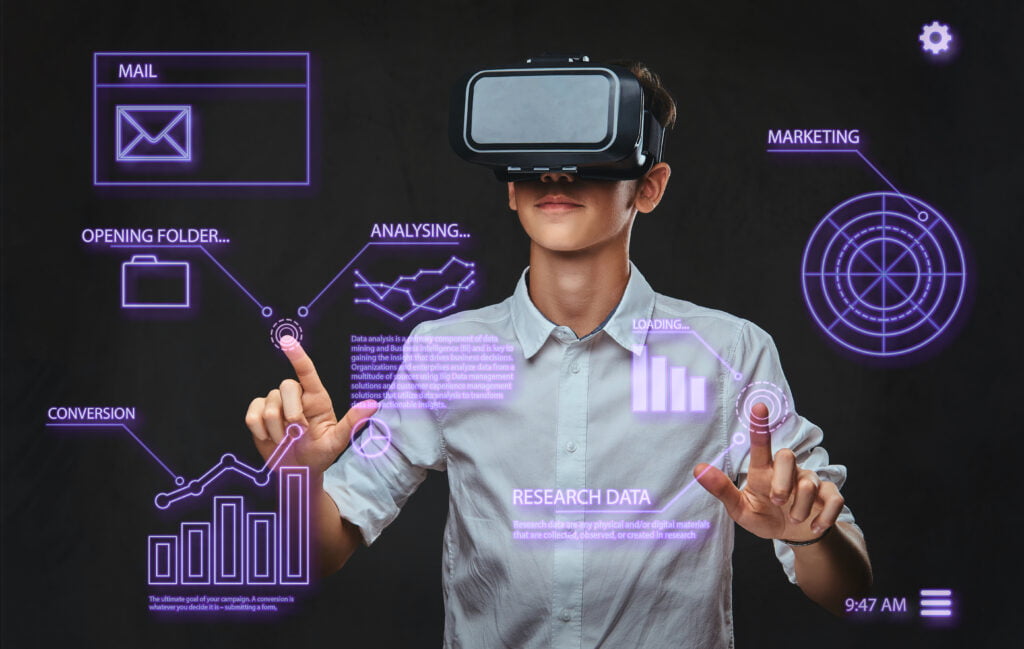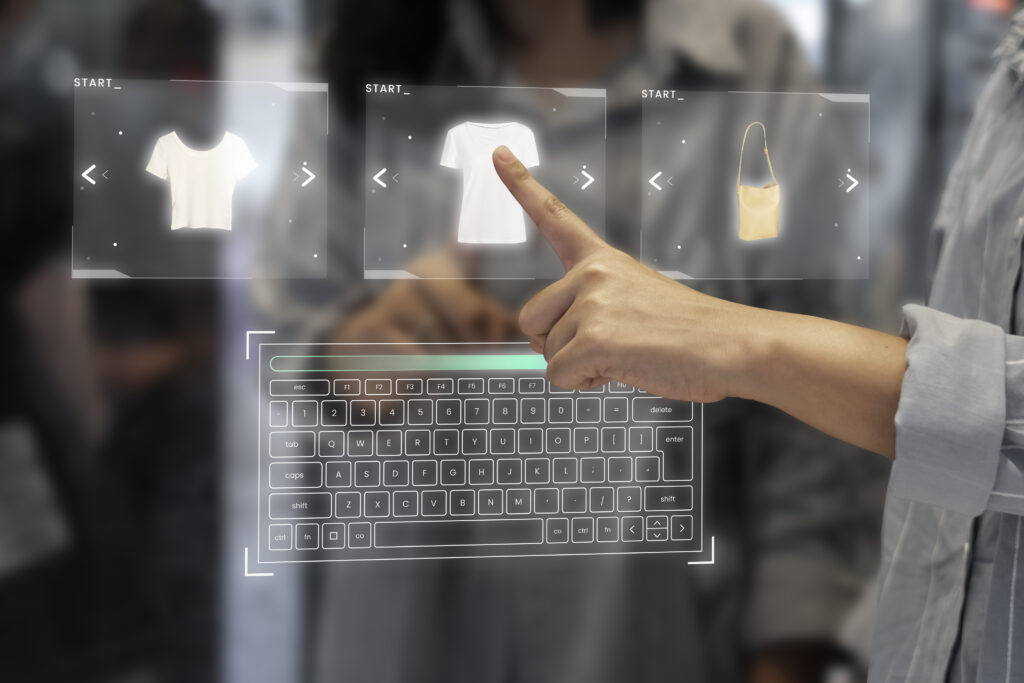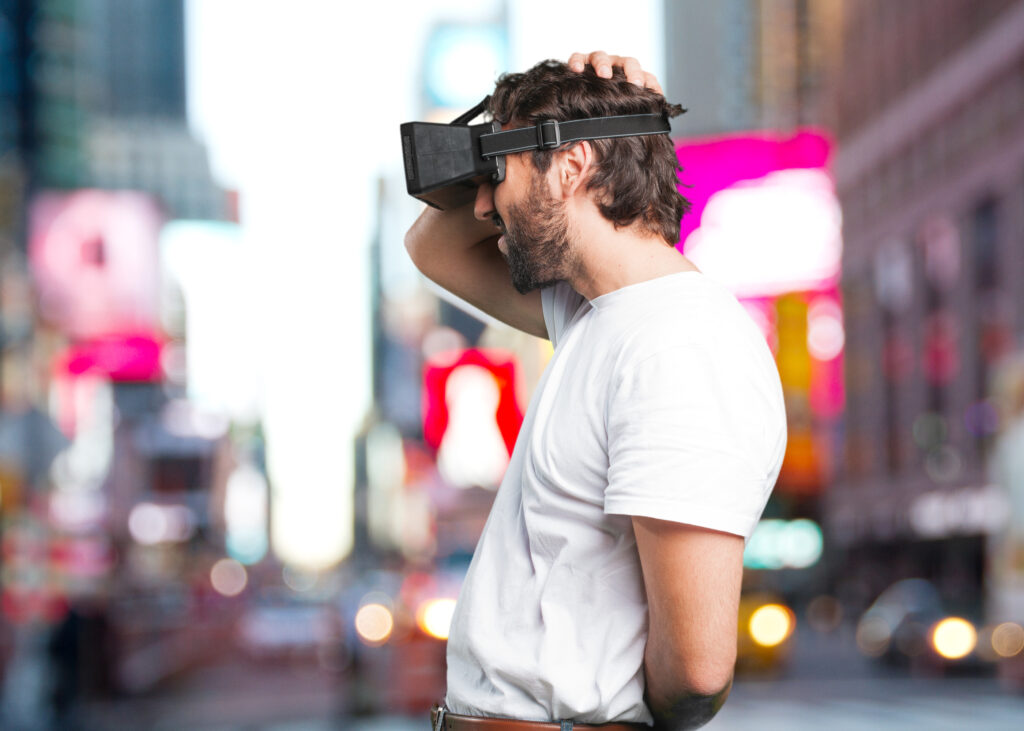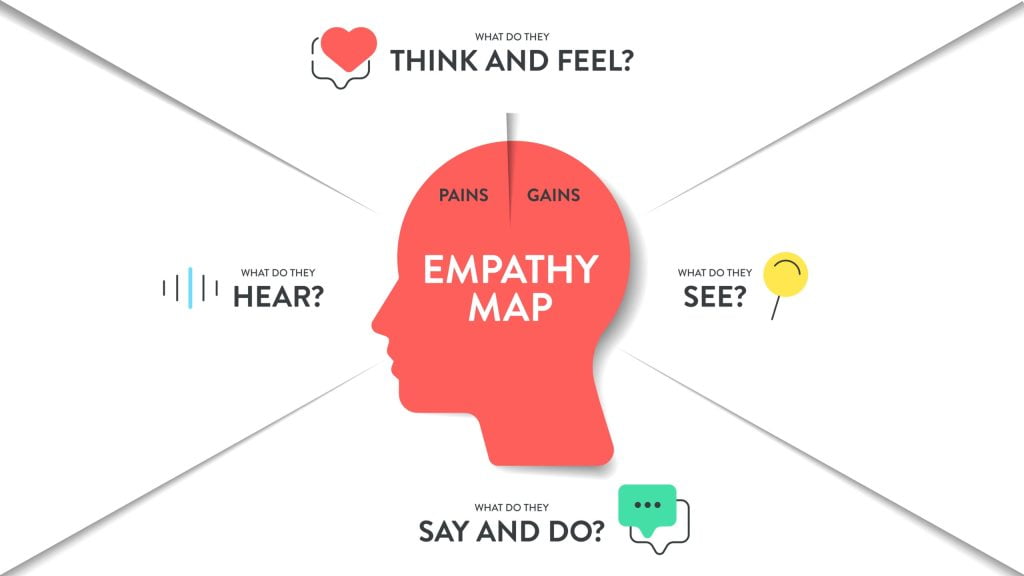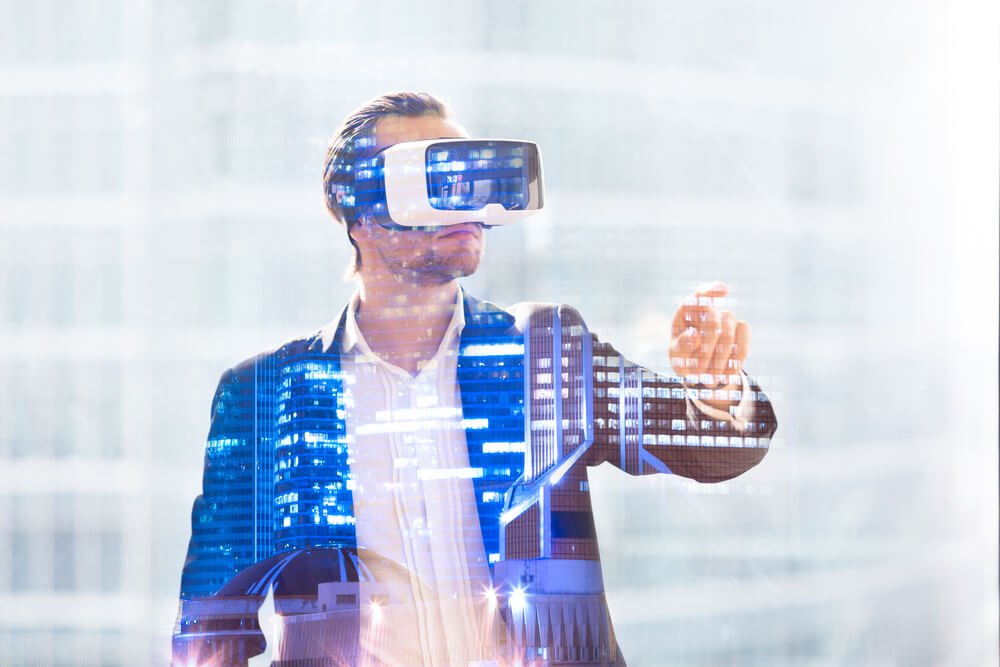The Role of Blockchain in The Metaverse
Table of Contents:
Over the past few decades, as the technology behind digital innovations such as the Internet and virtual reality has developed and become more sophisticated, new solutions have come about which have caused significant changes in how things can be done. One of these is blockchain technology, something which is slowly becoming more and more a part of the public consciousness. But what is a blockchain, and how is it related to the metaverse? In this article, we provide a basic overview of blockchain technology and explain how it is connected to the metaverse.
What is blockchain technology?
Blockchain was first envisaged back in 1982 but has grown in use since Satoshi Nakamoto (possibly one individual, possibly a group of people) brought about the first blockchain to be decentralized in 2008. A year later, the technology was integrated with the bitcoin cryptocurrency, and this is where it really began to come into its own. To put it simply, a blockchain acts as a digital ledger that stores records (blocks) of all transactions in such a way that they cannot be tampered with without affecting subsequent records. The information on the blockchain is also backed up by a kind of group effort where it is stored across many different computers and managed via a peer-to-peer network. This means that transactions can be independently checked and authenticated, making the whole process very secure. And it’s this security that has led to the expansion of blockchain solutions, with some amazing growth already having taken place. For example, back in 2014, the size of the bitcoin blockchain was 20GB, but a mere 6 years later, this had grown to more than 200GB; a ten-fold increase. And this is just one blockchain.
How is blockchain technology connected to the metaverse?
In the metaverse, the use of a blockchain allows unique digital assets to be created, something that makes metaverse commerce possible. Without it, these assets could simply be copied and remade infinitely without anyone being able to prove who owns or created the original. This facilitates value creation within the metaverse, making it more like the real world, since unique objects can be authenticated, therefore allowing ownership of digital products which mirrors real-world ownership.
See our Mazer blog post on NFTs for more information related to this: The Metaverse And NFTs: What Are They And How Do They Work
Unlock the future with Mazer: Your innovation partner.
One of the big benefits of the blockchain is that it frees the metaverse from relying on a centralized network to function. This means that no particular platform is required to access the virtual space of the metaverse. Instead, virtual worlds can be created within which people can interact, play, and even trade without having to be connected to a company like Facebook, who keep and possibly use your data. The existence of blockchains allows digital objects to be independently validated, and thus a centralized organisation is not required to do this. This has already led to the construction of virtual worlds like Decentraland, where blockchain technology allows people to buy and sell digital assets, including virtual real estate. The whole thing is based on the Ethereum blockchain, which currently has more than 1000 nodes hosting its network around the world. Because the network is held across these decentralized nodes, there is no single organization behind it or in charge of processing transactions, making the virtual world somewhere that is open, free, and ultimately more private than the current online world. The days of companies like Google owning your data will be over as you will be able to fully own your data in the metaverse.
This all gives more power to the individual user, which is what Decentraland is all about. As part of this freedom, they have made use of the decentralized autonomous organization (DAO) system of governance. This is a decentralization protocol backed up by the blockchain which gives users the power to vote and affect policies, regulations, and changes within the metaverse ecosystem. Add this to the use of blockchain-supported NFTs to allow individuals to buy and sell unique digital objects, and you’ve got a much more open marketplace. And it doesn’t end there; another blockchain-based technology known as ‘smart contracts’ creates increased transparency and even greater autonomy in the metaverse. Such contracts remove the requirement for a third party to be involved when establishing an agreement in the virtual world. As applications which can be built into the blockchain, they automatically come into force when certain conditions are met, and their integrity is fully protected by the aforementioned security that the technology brings. For example, two people might arrange a transaction in ether, the Ethereum blockchain currency, using a smart contract. This transaction would automatically be carried out within the metaverse ecosystem once its conditions had been met, all without a bank being required, and if anyone had a dispute regarding the price paid, for example, the digital ledger in the blockchain could easily be checked to validate the agreement, again without the need for any third party like a lawyer becoming involved.
Multiple platforms, multiple worlds, and multiple experiences
As we have seen in previous Mazer blog posts, the metaverse will offer all sorts of possibilities to its users. Multiple worlds will be created, but not just by huge corporations such as Facebook. In this new virtual frontier, anyone with the capability will be able to create their own virtual worlds, and it is the blockchain that will help to connect all of these into one massive universe that will constitute the metaverse. The blockchain will allow proof of ownership, digital goods, and cryptocurrencies to be transferred seamlessly between worlds as users jump from one to the next, having a currently unimaginable array of virtual experiences along the way.
This ability to connect metaverse spaces together will offer businesses a whole new realm of opportunities. At XR Wizards, work is already underway on creating their own metaverse platform, Mazer. Within this, businesses can build their own metaverse space, or Mazer space, within which their part of the virtual world can exist. Here, they will be able to offer their clients and customers unique virtual experiences, offering interesting new ways to engage with their brand. All of these spaces are connected into a honeycomb-like structure which, thanks to blockchain technology, users can traverse through without changing their avatar or having to repeatedly login and logout. And since this is backed by the blockchain, everyone’s information is securely protected so that businesses and other customers cannot see each other’s data. In fact, not even XR Wizards can see this data, making the Mazer platform a truly safe digital space for people to explore and enjoy the benefits that the metaverse has to offer, both for business and pleasure.
Final thoughts
Without blockchain technology, the metaverse would not be possible. It will facilitate the move from Web 2.0 to Web 3.0, where the virtual world becomes more intimately linked with the real world. So, now is the time to get involved. Look at platforms like Mazer to discover how this exciting new innovation can take your business to the next level and put you light years ahead of the competition, safe in the knowledge that it is supported and secured by blockchain technology.
Read also: Metaverse 101: What Is It, What Will It Look Like, And How Will It Develop
What is blockchain technology?
Blockchain is a digital ledger storing transaction records in blocks, secured through decentralization and peer-to-peer networks.
How is blockchain related to the metaverse?
Blockchain enables the creation of unique digital assets in the metaverse, supporting commerce by authenticating ownership of digital products. It decentralizes the metaverse, freeing it from reliance on centralized networks, fostering privacy, and allowing the creation of decentralized autonomous organizations (DAOs) for user empowerment.
What benefits does blockchain bring to the metaverse?
Blockchain in the metaverse ensures proof of ownership, facilitates digital asset transfer seamlessly between worlds, and enhances security.
Unlock the future with Mazer: Your innovation partner.
Author: Rafał Siejca
Rafal has over twenty years of corporate experience, including roles at Millennium Bank, Comarch, and leading software teams at PZU, one of Europe’s largest insurance companies.As one of Poland’s few true VR experts with a decade of experience, he ensures timely, high-quality project delivery as CEO and CTO.


